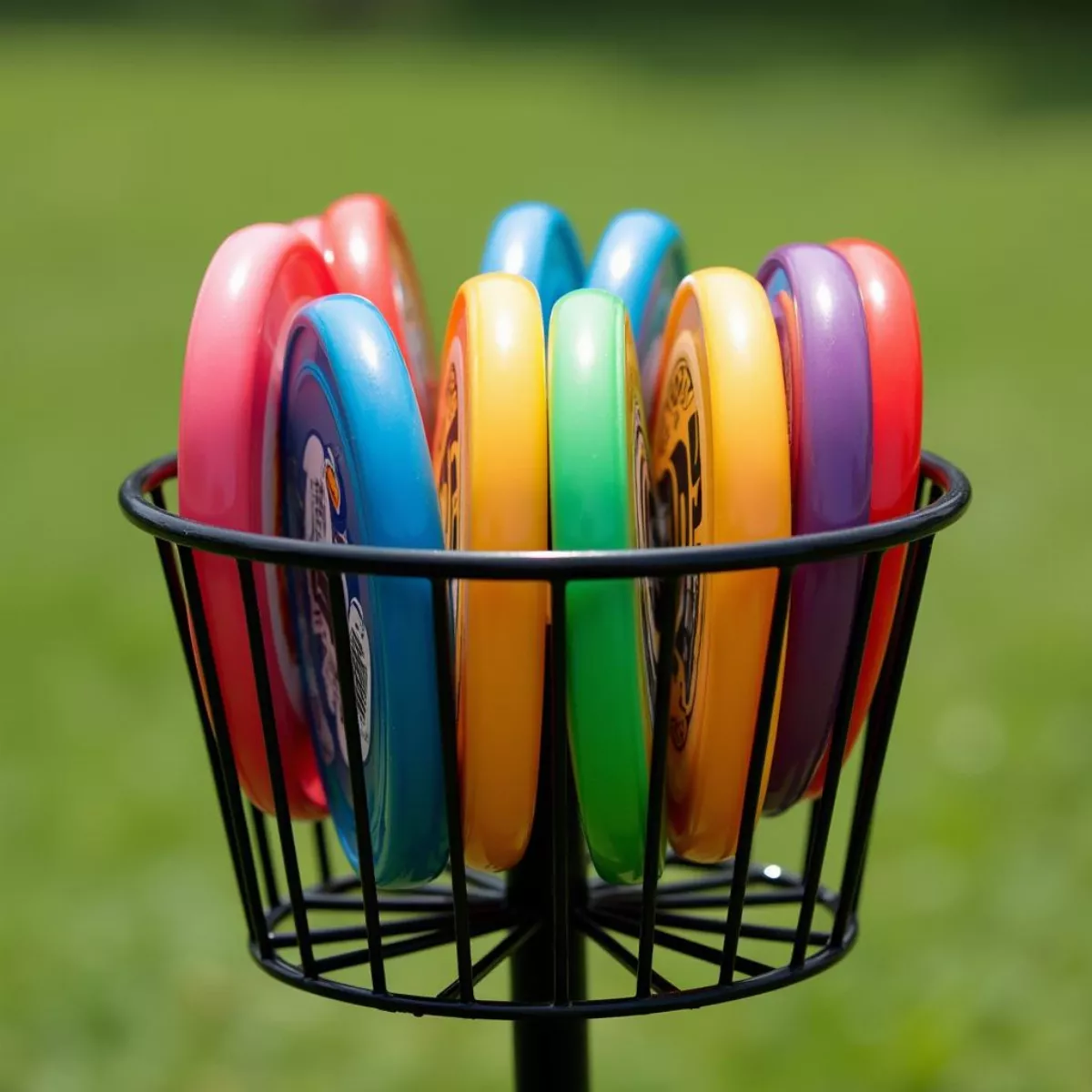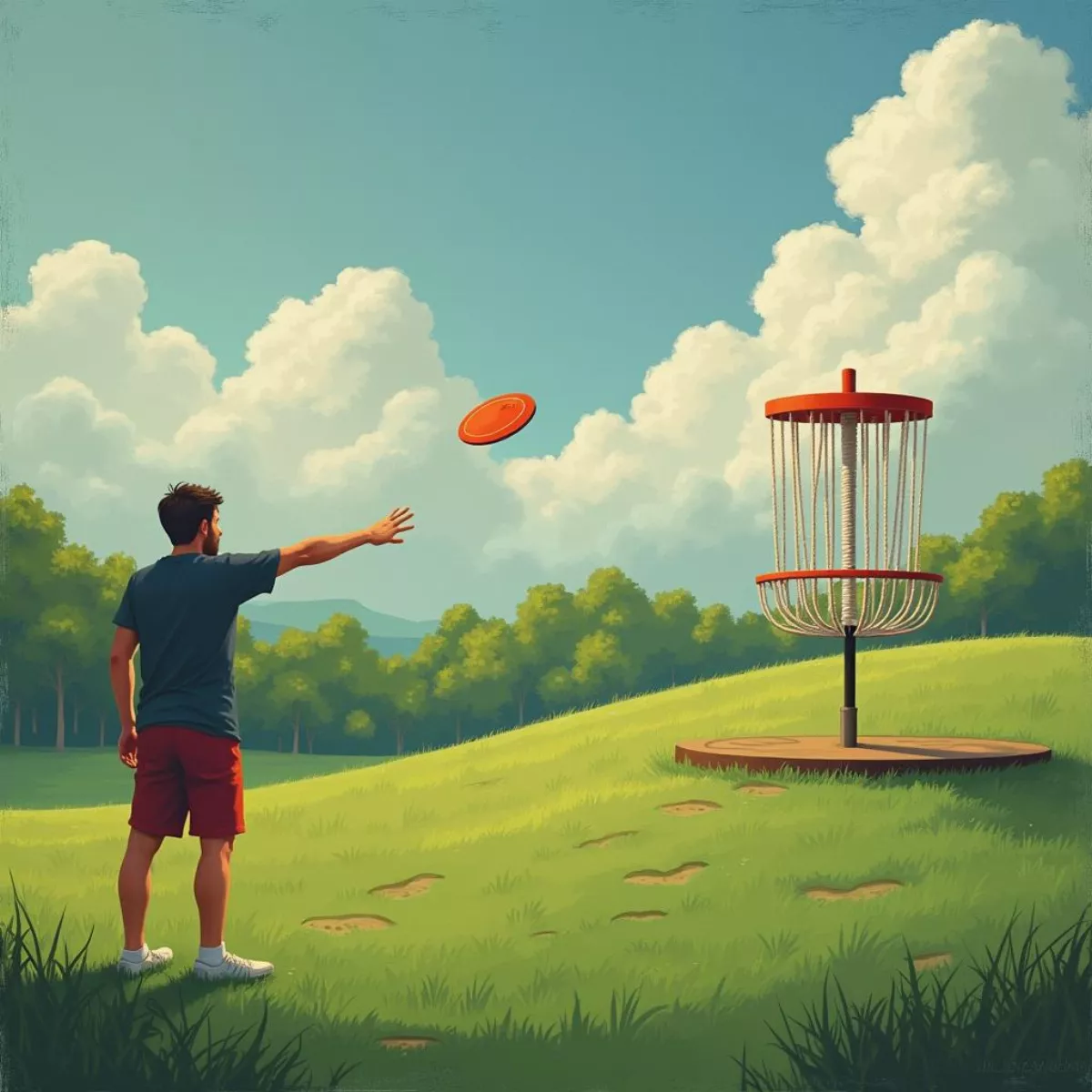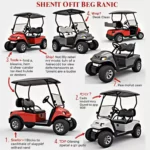If you’ve ever been to a park, you’ve likely seen people tossing around Frisbees or disc golf discs. While both items belong to the same family of flying discs, they serve different purposes and exhibit distinct characteristics. In this article, we’re diving deep into the differences between disc golf discs and Frisbees, empowering you with knowledge to make informed choices whether you’re a beginner or a seasoned player.
What is a Frisbee?
Frisbee is actually a brand name that has become synonymous with any flying disc. Introduced in the 1950s, Frisbees were originally designed for casual play, with an emphasis on fun and entertainment. They’re commonly used in games like catch or Ultimate Frisbee, a team sport that combines elements of soccer and football.
Key Characteristics of Frisbees:
- Material and Flexibility: Frisbees are generally made from durable plastic that allows for a degree of flexibility, making them more resilient to impact.
- Weight: Standard Frisbees typically weigh between 170 to 200 grams.
- Design: Most Frisbees have a smooth, wide rim which allows for easier catches and a larger surface area for spinning.
- Flight Pattern: They are designed for stability and gliding, which makes them suitable for longer throws when playing catch.
 Frisbee in flight
Frisbee in flight
What is a Disc Golf Disc?
Disc golf discs are purpose-built for the sport of disc golf. Unlike your average Frisbee, disc golf discs offer a high degree of precision and are engineered for specific types of throws, including drives, mid-range shots, and putts.
Key Characteristics of Disc Golf Discs:
- Weight: Disc golf discs usually weigh between 150 to 180 grams. However, some brands offer heavier options for seasoned players.
- Design: Disc golf discs have a more varied design compared to Frisbees. They come in three major categories: drivers (for long-distance), mid-range (for versatility), and putters (for short, controlled throws).
- Stability: The stability of a disc golf disc is typically categorized into four types (overstable, straight, understable, and stable). This affects how the disc behaves in the air and can significantly impact a player’s performance.
- Grip: The rim of disc golf discs may vary in width, which can affect grip during throws. Some discs have a sharper edge, enhancing control and precision.
 Disc golf discs in basket
Disc golf discs in basket
The Main Differences
Below is a summary table that highlights the key differences between disc golf discs and Frisbees.
| Feature | Frisbees | Disc Golf Discs |
|---|---|---|
| Purpose | Casual Play | Disc Golf Competition |
| Weight | 170-200 grams | 150-180 grams |
| Design | Wide rim, smooth surface | Varying rim width, specific shapes |
| Stability | Generally stable | Four stability categories |
| Grip | Standard grip | Customizable grip (width varies) |
| Flight Path | Glides, easy to catch | Engineered for specific shots |
Choosing the Right Disc
When you’re ready to pick a disc for your next outing, it’s essential to understand what you’ll be using it for.
For Casual Play:
- Go for a Frisbee if you’re looking for a fun, carefree time at the park or beach. Frisbees are perfect for casual catching games, and they can be thrown easily by anyone, regardless of skill level.
For Disc Golf:
- Opt for a disc golf disc if you want to engage in the sport of disc golf. It’s advisable to have a mix of drivers, mid-range discs, and putters to tackle different challenges on the course.
 Disc golf player taking a shot
Disc golf player taking a shot
Tips for Beginners:
- Try Before You Buy: Before purchasing, many local shops or clubs allow you to test out different types of discs, helping you find what feels right.
- Seek Guidance: Joining a local disc golf community can provide insights on the best discs for your skill level and playing style.
Frequently Asked Questions (FAQ)
Q1: Can Frisbees be used for disc golf?
A1: While you can throw a Frisbee on a disc golf course, it won’t perform as well as a purpose-built disc golf disc.
Q2: Are all disc golf discs the same?
A2: No, disc golf discs come in various types: drivers, mid-range, and putters, each designed for specific throwing actions.
Q3: How much do disc golf discs usually cost?
A3: Prices can range from $10 to $25 depending on the brand, disc type, and added features.
Q4: What’s the best weight for a disc golf disc?
A4: For beginners, lighter discs (around 150-160 grams) are often easier to throw, while more experienced players may prefer heavier discs for better control.
Q5: Can I throw a disc golf disc like a Frisbee?
A5: You can, but a disc golf disc is engineered for specific throwing techniques. It may not glide as well when thrown casually.
Q6: How often should I change my disc golf discs?
A6: It depends on usage and wear. Typically, beginner and intermediate players will want to replace their discs every few seasons, while advanced players may choose to update discs more frequently based on performance.
Q7: What’s the best way to learn disc golf?
A7: Joining a local club, attending workshops, or watching tutorial videos can significantly improve your understanding and skills in disc golf.
Q8: Can children play disc golf?
A8: Absolutely! Distinctly lighter bags and discs suitable for younger players are available to ensure they can enjoy the sport.
Key Takeaways
- Frisbees are mainly meant for casual play, while disc golf discs are designed for the sport of disc golf.
- Different types of disc golf discs serve specialized purposes: drivers, mid-range discs, and putters.
- Choosing the right disc for your activity can enrich your experience, whether it’s a fun day at the park or a competition on the disc golf course.
By understanding the differences between Frisbees and disc golf discs, you’re better equipped to enjoy these fun-filled activities, whether you’re throwing for leisure or aiming for par on the course.

